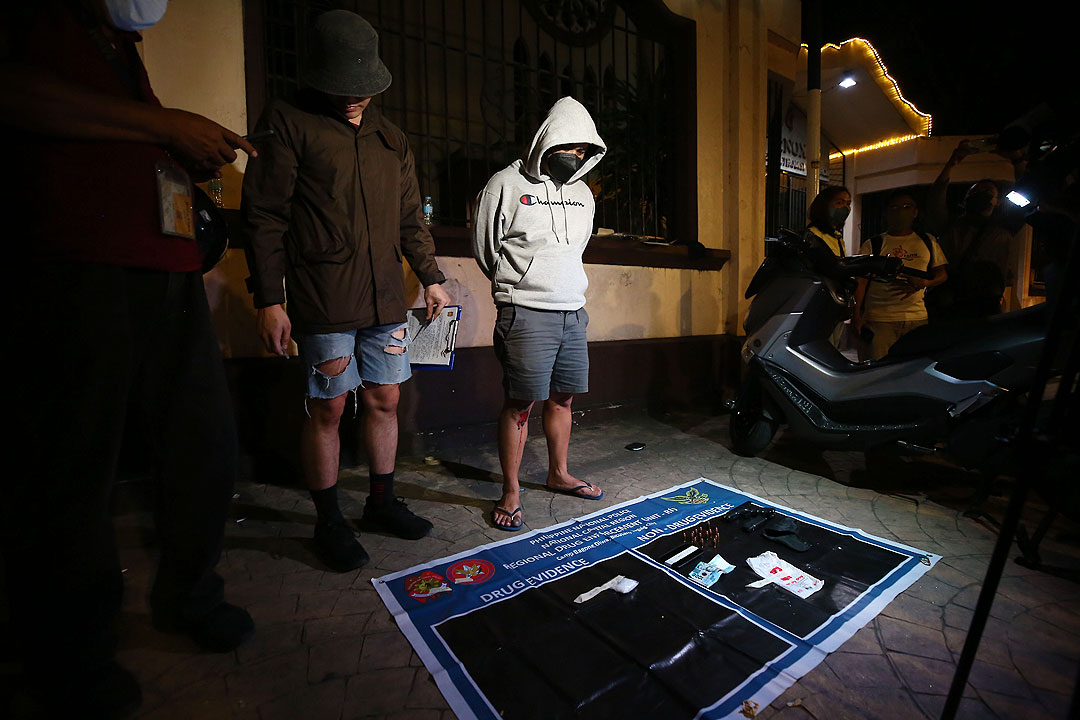
By John Victor D. Ordoñez, Reporter
THE PHILIPPINES should halt its deadly anti-illegal drug campaign to end police impunity instead of doing away with a weekly quota system for arrests, human rights advocates said at the weekend.
“As long as the war on drugs is an active policy, the police will keep killing because they have enjoyed multiple years of impunity,” iDefend, a human rights group, said in a Twitter message.
“iDefend does not believe the problem lies in the quota system, but in the whole coercive environment of violence created by former President Rodrigo R. Duterte’s war on drugs,” it added.
At a House of Representatives hearing on the Department of Justice (DoJ) budget on Aug. 23, Justice Secretary Jesus Crispin C. Remulla said his agency wants to do away with the quota system, blaming it for low conviction rates, especially in illegal drug cases.
He said he had spoken with national police chief Benjamin C. Acorda, Jr. and his predecessor about removing the quota system for good.
DoJ and police records showed that 80% of criminal cases are dismissed for lack of probable cause, DoJ spokesman Jose Dominic F. Clavano IV said in June.
The Justice Secretary also urged the Commission on Human Rights (CHR) to respect the Marcos government’s decision not to rejoin the International Criminal Court (ICC) and allow state investigation of the deadly war on drugs.
This comes after SAGIP Party-list Rep. Rodante D. Marcoleta cited news reports of CHR saying it would cooperate with the ICC’s probe of the government’s anti-illegal drug campaign.
iDefend welcomed CHR’s commitment to help the ICC, but noted it is still up to the DoJ to prosecute erring officials in relation to the drug campaign.
The ICC on July 18 rejected a Philippine appeal to suspend its probe of Mr. Duterte’s war on drugs, paving the way for its prosecutor to later indict and order the arrest of local officials who aided the campaign.
It reopened its probe of Mr. Duterte’s campaign against illegal drugs in January, saying it was not satisfied with government efforts to probe human rights abuses.
CHR in July said the Marcos government should view the ICC’s decision as an opportunity to show its commitment to punish human rights violators.
iDefend said Congress should prioritize measures that propose a health-based approach to the drug issue in the country and legislation that protects human rights defenders.
Ephraim B. Cortez, president of the National Union of Peoples’ Lawyers, said DoJ’s commitment to improve case build-up should also focus on erring cops.
“The investigation of these kinds of cases should not be left to policemen who may tend to whitewash the investigation,” he said in a Viber message. “Policemen and their superiors involved in operations where someone is killed should be immediately investigated.”
Interior and Local Government Secretary Benjamin C. Abalos, Jr. on Aug. 14 said his agency would consult with the National Police Commission about revising the three-strike policy for erring police officers.
This was after six Navotas policemen shot and killed Jerhode Baltazar on Aug. 2 after he was mistaken for a suspect in a previous shooting incident.
DoJ earlier raised the standards for filing criminal cases, requiring state prosecutors to ensure cases lead to a “reasonable certainty of conviction” to ease jail congestion. The agency also halved the bail amount for poor Filipinos.
Justice Undersecretary Hermogenes T. Andres has said his department was working on improving the capabilities of local law enforcement agencies to gather evidence and investigate crimes to boost convictions.
CHR could provide ICC Prosecutor Karim Ahmad A. Khan with documents related to reports of human rights abuses during the deadly drug war, Mr. Cortez said. “This will compensate for the unwillingness of the Philippine government to cooperate with the ICC.”
Last month, President Ferdinand R. Marcos, Jr. said the Philippines would no longer engage with the ICC after it rejected a plea to suspend its probe of the drug war.
CHR has said Mr. Duterte had encouraged a culture of impunity by hindering independent probes and failing to prosecute erring cops.
The Philippines has accepted 200 recommendations from the United Nations Human Rights Council, including investigating extralegal killings and protecting journalists and activists.
The government estimates that at least 6,117 suspected drug dealers were killed in police operations. Human rights groups say as many as 30,000 suspects died.
This post was originally published on this site be sure to check out more of their content.








